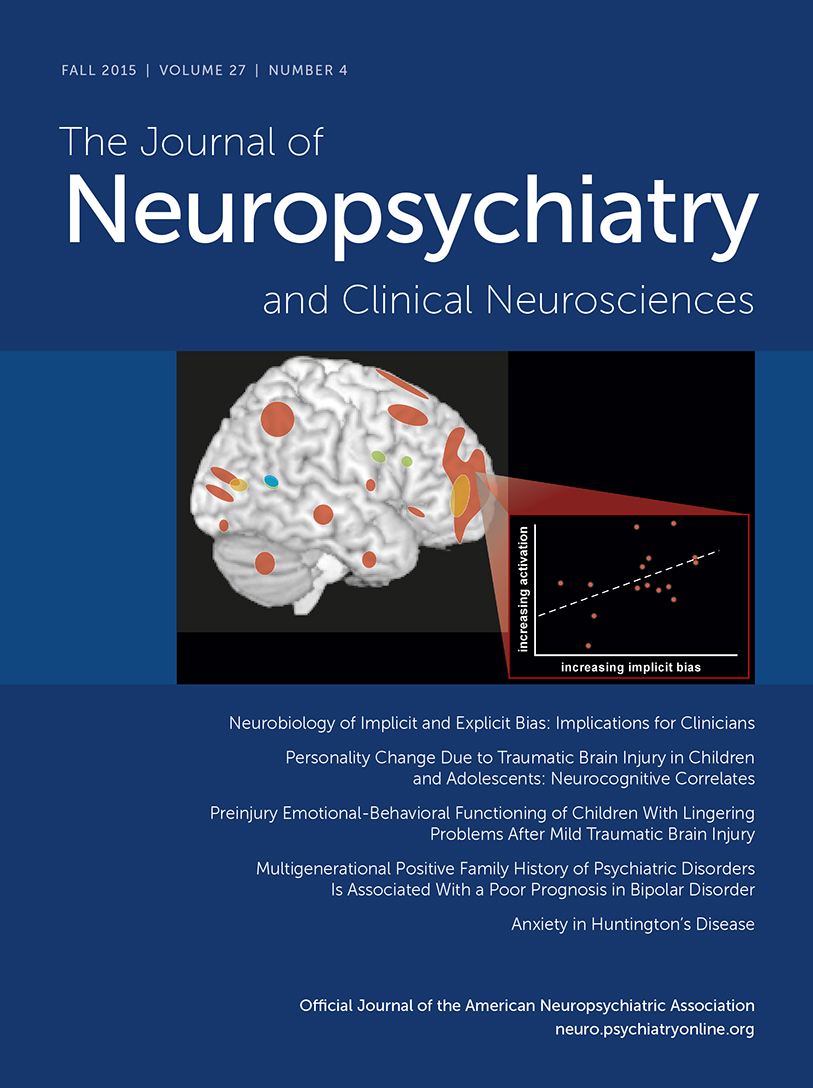Personality Change Due to Traumatic Brain Injury in Children and Adolescents: Neurocognitive Correlates
Abstract
Personality change due to traumatic brain injury (PC) in children is an important psychiatric complication of injury and is a form of severe affective dysregulation. This study aimed to examine neurocognitive correlates of PC. The sample included 177 children 5–14 years old with traumatic brain injury who were enrolled from consecutive admissions to five trauma centers. Patients were followed up prospectively at baseline and at 6 months, and they were assessed with semistructured psychiatric interviews. Injury severity, socioeconomic status, and neurocognitive function (measures of attention, processing speed, verbal memory, IQ, verbal working memory, executive function, naming/reading, expressive language, motor speed, and motor inhibition) were assessed with standardized instruments. Unremitted PC was present in 26 (18%) of 141 participants assessed at 6 months postinjury. Attention, processing speed, verbal memory, IQ, and executive function were significantly associated with PC even after socioeconomic status, injury severity, and preinjury attention deficit hyperactivity disorder were controlled. These findings are a first step in characterizing concomitant cognitive impairments associated with PC. The results have implications beyond brain injury to potentially elucidate the neurocognitive symptom complex associated with mood instability regardless of etiology.



